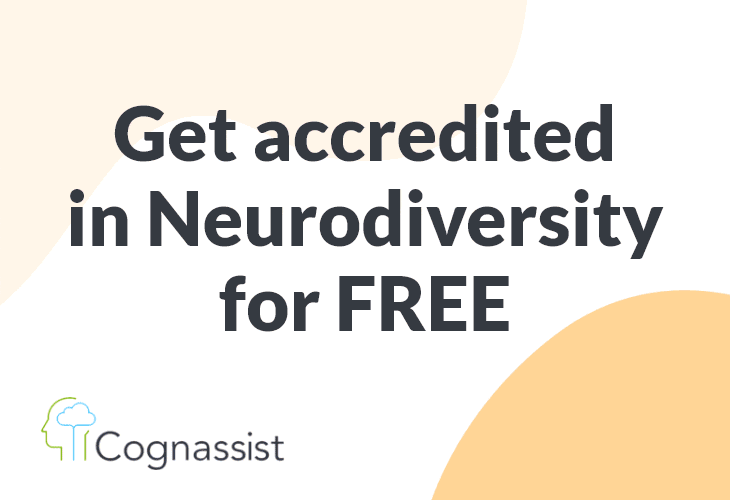How to support neurodiverse learners: #6 Numeracy

Like literacy, our numeracy skills often get reduced down to our ability to do sums in our head and wondering why we studied algebra at school when we never use it.
Numeracy is, however, very useful throughout our lives. It encompasses everything we perceive about numerical information, including:
- Recognising patterns.
- Making decisions based on weighing risks.
- Ranking information.
- Ratios and numerical comparisons.
- Scoring metrics.
- Timekeeping and time management.
- Finance and spending. Numeracy informs some of the fundamental skills of working life.
Difficulties with numeracy can cause noticeable behaviours, like:
- Feeling anxious about mathematical topics and avoiding these subjects.
- Being consistently late for lessons or meetings – poor time management skills.
- Difficulty understanding the connections between related mathematical concepts, like fractions, percentages and proportions.
- Going into panic mode when confronted with data, excel documents and budgeting.
Our three top tips for supporting a need in numeracy
#1 Prioritise tasks in advance
It can benefit learners to prioritise their work in advance with the help of tutors or course leaders, so they have an idea of which of their daily tasks will take precedent over others. They could also be given reference materials to reinforce this, if necessary.
#2 Use diaries and schedule reminders
Learners may find it helpful to use a diary to write down all appointments and deadlines, with progress reminders to help them manage their time.
Alternately, they could use the calendar on their phone or laptop. It can also help for tutors to remind learners of any appointments and check-in on their progress targets.
#3 Discuss numerical concepts with real-world examples
Whether it’s with a physical object or real-life scenario, it can be useful to explain and ground abstract mathematical concepts in different ways that may be easier to process.
Visual cues like graphs and diagrams can also aid a learner’s comprehension.
Dr. Louise Karwowski, Head of Science, Cognassist
So, what’s next?
We’re about to bring you something very exciting. A serialised set of guides on how to identify and support learners with a need in the eight key cognitive domain.
How to support neurodiverse learners: |
We’ll be posting one guide a week, rounding up with a podcast with Dr Louise Karwowski, Head of Science at Cognassist, who will discuss the importance of starting the conversation about neurodiversity with your staff and learners.
If you like the sound of understanding more about neurodiversity, you can register for free for the NCFE endorsed Neurodiversity Masterclass here:
You can also check out the full guide How to support Neurodiverse learners now.












Responses